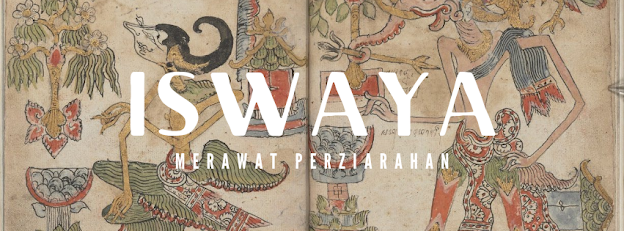 |
| Sumber: Alang-alang kumitir |
Randugati - Religion always manifests itself in the form of ethical or moral messages in the nobility of human life. One of Mohammad Sabri's theses emphasizes that religion should really be something soothing in life. As Islam is rahmatan lil'alamin, so anyone has the right to receive peace and prosperity from Islam itself, both in the concept of teaching and the practice of its adherents.
The idea of Islam pribumisasi, for example, is to ground
Islam, making salvation for anyone who is close to Islam. Islam as a teaching
at least has a mission of welfare for anyone, a sense of comfort, a sense of
security, in short, the benefit of humanity.
We often feel uncomfortable, because as religious believers,
we must obey and practice the teachings of the religion itself. However, it
should be underlined, that the scope of humanity that is very plural and multi
is part of the grace of the Almighty.
The Pribumization of Islam is a concept that emerged in
Indonesia in the 20th century, which refers to the effort to unite Islamic
values with local culture, ultimately forming a distinctive Indonesian Islamic
identity. This concept is not a static doctrine, but a continuous and dynamic
process of responding to cultural and social changes.
There is a Javanese metaphor about the relationship between
humans and humans, a dynamic social movement, namely gegayuhaning manungsa karo
manungsa. The diction used is "gegayuh" where the correlation with
Islamic teachings is "al hablu" the link, the relationship, the care,
the love, the nurturing, even more than just a form of relationship as
mentioned by Aristotle, that humans are zoon politicon. There is a value to
mutual respect, appreciation and self-expression of love both humanistically,
and theologically. Islam rahmatan lil'alamin does not only stagnate in the
understanding of inclusivity, but has gone beyond it all, namely plenary,
nobility. Pribumisasi Islam has a role to play in creating that nobleness.
Pribumisasi Islam is the result of interaction and
acculturation between Islam and Nusantara culture. Islam arrived in Indonesia
in the 7th century through traders and spiritual experts from India and Arabia,
and over time, Islam underwent transformation and adjustment to local culture.
In this process, Islam is not only a teaching, but also becomes a value that is
just sublime and enters into social life.
The culture of the archipelago is very diverse, and so is
the spread of religion. Forms of social tradition born before Islam entered the
archipelago can be colored with Islamic values. Jaranan, wayangan, slametan,
village topo mini, pepunden, tombs, sekatenan rituals, and so on are forms of
tradition that ultimately also become media for da'wah. Sunan Kali Jaga with
the art of dance and puppetry, Sunan Bonang with Gamelan, the wali sanga with
the tradition of Javanese literacy and pegon, carving culture or ornamental
varieties are forms of cultural integration with religious values. Islam is not
merely a rigid heavenly religion that contains justifications, Islam can be a
moral shelter for all humanity, so Gus Dur firmly talks about humanity.
Diversity must always be understood as the key to mutual
respect and honor, not about justifications that are subject to heresy,
un-Islamic, un-Quranic, and so on. Moral messages in puppetry, diversity of
patterns in batik, script and literacy tutur tinular are forms of culture that
emphasize the unity of Indonesia. There is no compulsion in religion, as well
as in a very dynamic social space.
Pribumisasi Islam also affects social and political life in
Indonesia. Islamic values such as justice, equality and humanity are often
referenced in political and social decision-making. For example, the concept of
gotong royong or cooperation in Indonesian society is a value that is closely
related to Islamic teachings on brotherhood and togetherness.
Although Islamic indigenization has many advantages in
preserving local culture and accommodating Islamic teachings, there are also
challenges that must be faced in this process. One of these is religious
conservatism which can limit the ability to integrate Islamic teachings with
local culture. In addition, social and cultural changes can also threaten the
sustainability of Islamic indigenization.

Komentar
Posting Komentar